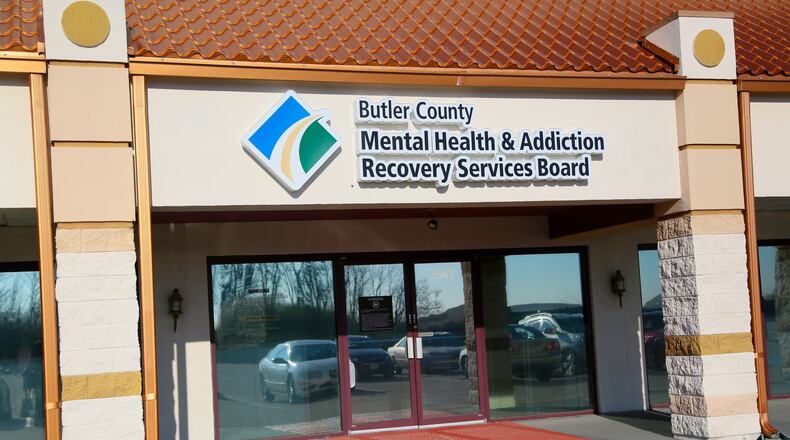MHARS Executive Director Scott Rasmus said this is a new levy, but it will replace the existing 0.5-mill, 10-year levy that first passed in 1985 and was last renewed in 2014. If successful they will retire the old funding source that expires this year. That levy costs taxpayers $5 per $100,000 and collects about $2.4 million.
Credit: Nick Graham
Credit: Nick Graham
He told the Journal-News when people go to the auditor’s website it will say the levy will increase their bills by about $17.50 per $100,000 in property value, however when you subtract the existing levy the difference is about $13 so “that’s about a dollar per month.”
“We’re only asking for what we need, this is not a wish list or a dream list,” Rasmus said. “We are just trying to sustain the programming we have over the next five years with this increase.”
Voters can go to the county auditor’s website to find out the exact impact if the levy succeeds here: https://auditor.bcohio.gov/real_estate/taxes/levies/index.php.
He said they have gone 39 years on the levy which is “flat funded,” meaning the amount received doesn’t increase, “when you have a 1985 half-mill levy it’s worth about a third of that now, you lose revenue over time.”
The other local tax collection is a 1-mill levy that first passed in 2006 and renewed in 2020. It costs about $20 per $100,000 annually and collects $8.3 million. So it has been 18 years since the board asked taxpayers for new money.
The half-mill levy expires this year and the 1-mill funding source ends next year. He said the plan is to pass the new levy this year and go for a renewal on the other in November 2026.
The Mental Health and Addiction Recovery Services Board operates on federal, local and state funding but 57% of their revenue comes from two local tax levies.
The MHARS Board doesn’t provide direct mental health and addiction services, they facilitate and pay for programs and services their partner agencies provide. The board has 14 full-time staffers and Rasmus said the estimated expense budget for next year is $20.7 million. He noted the bulk of their budget pays for programs not personnel.
“The board’s overhead is 9% so that means 91% of our funds go to programs and services,” Rasmus said adding their services go beyond just those people receiving care.
“Clients that are in mental health treatment have a low percentage of violence, people with mental illness in general do but treatment promotes safety of communities,” Rasmus said. “Not only with the clients that are served but the community as a whole.”
According to the board’s 2025 tax budget submission, in 2022 they served about 37,400 “unique” clients which is about 10% of the county’s population. He said the 2023 annual report shows they served more than 40,000 clients.
“We are touching now one out of 10 Butler County residents in the sense that that could be education, it could be prevention, it could be treatment, it could be residential services, it could be community-based services,” he said. “We’re continuing to see an increase in need.”
Rasmus said there are several populations of concern right now, such as the number of suicides that is continuing to grow. According to the Butler County Coroner’s Office deaths by suicide stood at 47 in 2019, dropped to 38 in 2020, increased to 50 in 2021, 64 in 2022 and 57 last year. The number of known or suspected deaths was 34 at the end of July and increased to 42 in two months.
Overdose deaths are also concerning. The county coroner’s office provided this newspaper statistics showing overdose deaths were at a low of 159 in 2019, spiked to 177 in 2020, dropped to 172 in 2021 and increased to 184 in 2022. The number went down to 130 last year and stood at 63 at the end of July but rose to 81 in two months time.
Rasmus said they are also targeting veterans — one out of six suicide deaths are by people who served their country — seniors, youth and families.
The Butler County commissioners must approve putting levy requests on the ballot but MHARS is an independent entity with its own board. When the commissioners approved putting the measure on the ballot Commissioner T.C. Rogers noted this is one of those “pay me now or pay me later” situations,
MHARS Board President Kim McKinney said her agency is “actually the template for a lot of support services in other counties that come to our county to look at how services are delivered, how funds are distributed and we utilize those services.”
She said a successful levy means they will be able to continue “excellent services” and they want “holistic health so that we’re a well rounded, well supported, so that everyone can contribute and be good citizens.”
About the Author
